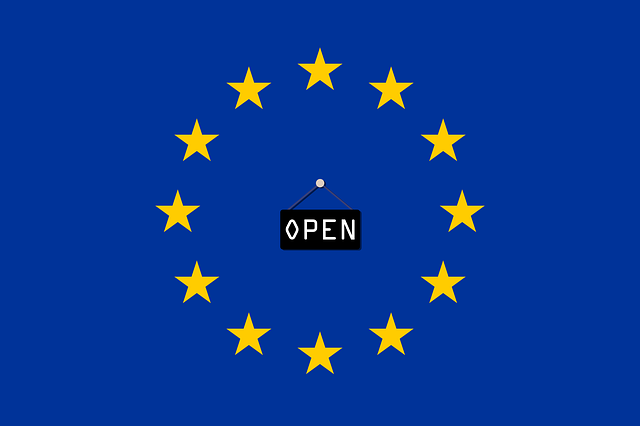By Angeliki-Myrsini Spyliopoulou,
In 1957, some nations decided to achieve a common market in order to reinforce their commercial power and a kind of self-sufficiency. In order to achieve it, they had to create a new entity, to which they transmitted some of their basic authorities in order to be able to manage crucial matters. One of them, with high importance for each nation, is economic and monetary policy, but also containing much importance for the proper functioning of the European Union, and as a consequence, it had to be transferred to its control.
The economic aspect of the E.U. policy is based on the coordination of the Member States economic policies in accordance with the principle of an open market economy with free competition. This field was not part of each individual nation’s authorities. Thus, every Member State can have their economic policy caring only for their national choices. However, there are three restraints: Firstly, nations must follow the model of the open market economy, while on the other hand, their economy should be at a good level, and lastly, nations must in every case follow the guiding principles of stable prices, sound public finances and monetary conditions, and a sustainable balance of payments.

The Council, trying to coordinate the actions of each Member State on economics, shows them the way to achieve their common goals through multilateral surveillance and budgetary discipline. Those are two procedures settled by the Treaty of the Functioning of the European Union in articles 121 and 126: Multilateral surveillance occurs when, after the European Council’s conclusions regarding each national economy, the Council gives instructions about the goals Member States must aim for, whereas budgetary discipline describes a mechanism of checking the budgetary shortfall.
In contrast to the economic policy, monetary policy is in the absolute authority of the E.U. for every Member State part of the Eurozone. Actually, it is defined by two independent institutions: the European System of Central Banks and the European Central Bank. The first of them is composed of the European Central Bank and the Central Banks of every member state. Its basic tasks are to define and implement the monetary policy of the Union, to conduct foreign-exchange operations consistently, to hold and manage the official foreign reserves of the Member States, and to promote the smooth operation of payment systems.
The European Central Bank, making all the above goals a reality, has the exclusive right to authorize the issue of euro banknotes within the Union. In addition, it adopts “regulations” with general application to every Member State, “decisions” binding in their entirety for the ones they are addressed to, and it formulates “recommendations” and “opinions” that are not binding on the European and national instruments for any matter related to its actions. As it can be observed, the European Central Bank has at its disposal a great number of tools to manage a stable monetary policy and to ensure economic safety for Member States.
We can conclude that the field often called “economic and monetary policy” is composed of two great sectors with significant differences. One aims at the coordination of the policies of the Member States regarding the economy, whereas the other has as a goal to achieve “a single monetary policy and exchange-rate policy, the primary objective of both of which shall be to maintain price stability and, without prejudice to this objective, to support the general economic policies in the Union” (article 119 T.F.E.U.). However, it can’t be claimed that they are totally different: both are parts of the economic model that the E.U. and its Member States should follow in order to maintain an open market.
Reference
- Β. Χριστιανός, Ρ.Ε. Παπαδοπούλου, Μ. Περάκης. «Εισαγωγή στο δίκαιο της Ευρωπαϊκής Ένωσης». 2η έκδοση. Eκδόσεις Νομική Βιβλιοθήκη. 2021. Αθήνα.




